Why Does Your Air Vent Smell Like Poop? Find Out Solutions Now!
Ever entered your house only to be greeted by an uninviting smell resembling poop coming from your air vents? Hi folks, I’m John Parker, a seasoned HVAC technician, and trust me, you’re not alone. This less than pleasant experience can paint quite a grim picture, and the concern is not just about the foul odor but the potential health hazards that it may pose.
But don’t worry, you’ve got John here to help! In this article, we’ll explore the puzzle of why your air vent smells like poop and the potential culprits behind it. More importantly, I’ll share some practical solutions to deal with this issue plus pro-tips on prevention. Let’s navigate through this together and help your home regain its freshness.
Arm yourself with important insights and fix-it-yourself tips as we drop knowledge bombs. Ready? Let’s dive in!
Understanding the Problem: Air Vent Smells Like Poop
When your air vent smells like poop, it’s not just unpleasant—it can be alarming and warrants immediate investigation. Tackling this issue promptly can save you from more significant headaches down the line.
Causes of Sewage or Fecal Odor in Air Vents
- Sewage or fecal odors emanating from HVAC systems can catch homeowners off guard. Addressing the issue quickly is crucial to preventing further complications.
- This foul smell might be a sign of a damaged sewer line that’s backed up into the basement, contaminating your HVAC system.
- Issues with plumbing vents can allow sewage smells to infiltrate and spread throughout your home via the air vents.
- Sometimes the stench originates from dead animals like birds or rodents trapped near or within the HVAC system.
- Mold or mildew growth inside the HVAC system can produce a musty, unpleasant odor, often mimicking the smell of feces.
- Blocked sewer lines or septic tank backflow can release sewage smells that permeate through the air vents and spread throughout the house.
- Dirty, clogged air filters in the HVAC system can also emit offensive odors.
- Leaks or cracks in vent pipes might release sewer gas into your home, resulting in an unmistakably unpleasant smell.
Health Risks Associated with Sewage Smells
- Exposing yourself to toxic methane gas, a common component of sewage smells, poses significant health hazards. For more information on sewer gas and its potential risks, check out this guide on sewer gas, which is a byproduct of the breakdown of natural human waste.
- Methane inhalation can affect both humans and pets, with potentially long-lasting health implications.
- Persistent exposure to foul air from vents can trigger headaches, dizziness, nausea, and respiratory issues for household members.
- Immediate remediation is essential to combat the dangers associated with prolonged exposure to toxic gases.
Main Causes of Foul Odors in Air Vents
Ever walk into your home and get hit with a rank smell that makes you think, “What died in here?” Here are some common culprits behind that poop-like stench wafting through your air vents.
Damaged Sewer Line and HVAC System Contamination
- When a sewer line takes a hit, it can send sewage backing up into your basement and eventually into your HVAC system. This mess can turn your air vents into carriers of a gross poop-like odor.
- Damaged sewer lines can let sewer gas sneak its way into your HVAC system, spreading the stink (and health risks) throughout your home. Prompt fixes are your best bet.

Restricted Evaporator Core Drain
- The evaporator core drain’s job is to get rid of moisture, but when it’s clogged, you’re left with stagnant water that stinks. This funk can flow through your air vents, making the whole house smell like poop.
- Keep that drain clear with regular maintenance to avoid a smelly disaster. A functional drain means a fresher-smelling home.
Plumbing Vent Issues
- Plumbing vents are supposed to send sewer gases out of your home, but if they’re blocked or busted, those nasty smells will come right back inside thanks to your HVAC system.
- Fixing these vent issues ASAP keeps those sewage smells from sticking around. Inspect and repair to ensure everything’s in working order.
Trapped Dead Animals Near HVAC System
- Birds, rodents, and other critters can get trapped near your HVAC system, and when they decompose, they smell awful. This stench can be pulled into your air vents, making your home smell like poop.
- Regular checks and prompt removal of any trapped animals can clear up this problem. Plus, preventive measures help keep animals out in the first place.
Mould or Mildew in HVAC System
- Mould or mildew inside your HVAC system can create a musty, poop-like odor. These fungi love damp spots, making your HVAC system their perfect home if it’s not properly maintained.
- Regular cleaning and maintenance are key to keeping mould or mildew at bay. Regular inspections and cleanings ensure your home smells fresh.
Blocked Sewer Lines or Septic Tank Backflow
- When sewer lines or septic tanks get blocked, sewage smells can infiltrate your air vents. This nasty odor needs immediate action to prevent it from spreading through your house.
- Handling these blockages quickly can help keep those smells in check. Routine inspections and maintenance of your sewer system are smart moves.
Dirty Air Filters
- Filthy air filters packed with dirt and debris can start to smell bad when your HVAC system is running. These odors spread through your air vents, filling your home with a nasty aroma.
- Changing out those filters regularly is essential for good air quality and odor control. Clean filters mean a fresher, more efficient HVAC system.
Vent Pipe Leaks or Cracks
- Leaks or cracks in vent pipes can let sewer gas escape into your home, bringing with it a persistent poop-like smell. These need to be fixed fast to stop the foul-smelling gases from spreading.
- Repairing any leaks or cracks is crucial. Regularly inspect your vent pipes to catch and resolve problems before they get worse.
Diagnosing and Locating the Source of the Smell
When your air vent smells like poop, it can really turn your home upside down. Identifying the root cause is crucial to getting rid of that nasty odor for good. Let’s dive into the main areas you should check.
Checking the HVAC System
- Start by thoroughly inspecting your HVAC system for any signs of contamination or visible damage. Even minor defects can lead to serious odor issues.
- Look carefully for evidence of mold or mildew growth within or around the HVAC components. Fungal growths not only smell bad but can also pose health risks.
- Scan for any signs of dead animals such as birds, rodents, or pests near the system. These can emit a potent odor resembling sewage that can easily spread through the vents.
Inspecting Plumbing for Issues
- Take a close look at the plumbing vents to detect any possible malfunctions. Issues with these vents are a common cause of sewage smells infiltrating your home.
- Identify and promptly address any leaks or cracks in the vent pipes. Such defects can allow sewer gases to escape into your living spaces, leading to that unpleasant odor from your air vents.
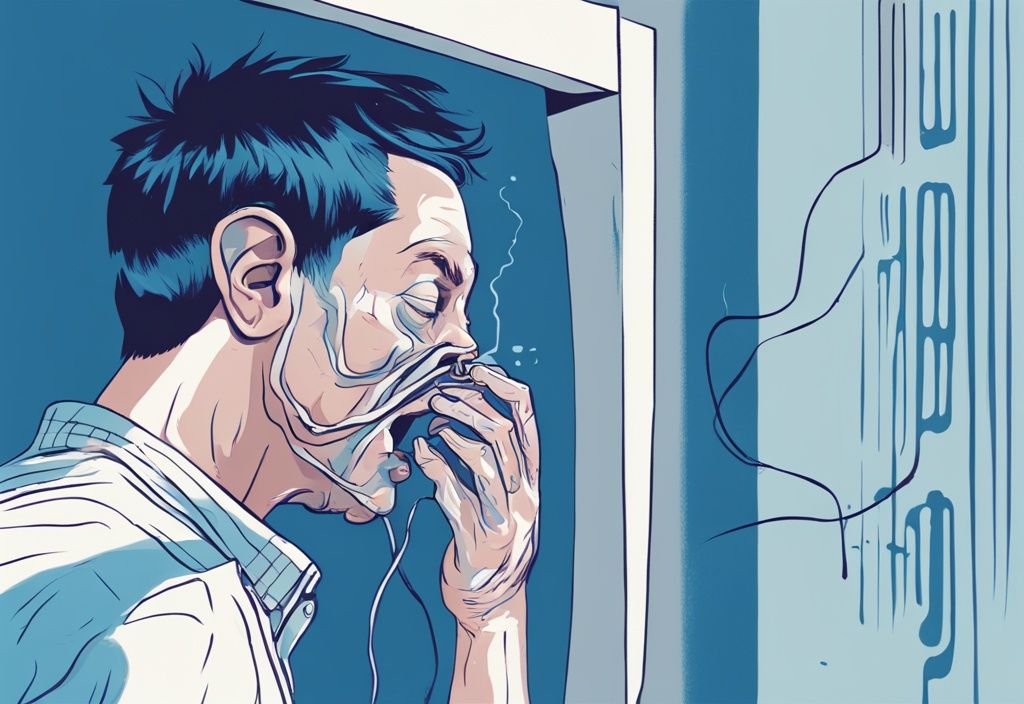
Looking for Signs of Dead Animals
- Check the area in and around your HVAC system for any dead animals. Their decay can release foul smells often mistaken for sewage odors coming from the vents.
- If you find any carcasses, make sure to safely remove them to eliminate the source. Also, take measures to seal potential entry points to prevent future occurrences.
Steps to Address and Eliminate Poop Smell from Air Vents
Finding your air vent smells like poop can be both alarming and unpleasant. Acting swiftly and efficiently is crucial. Here are essential steps to resolve this issue:
Immediate Actions to Take
- Evacuate the area: Quickly leave the affected area to avoid inhaling any harmful sewer gases that may have infiltrated your home.
- Contact professionals: Reach out to both a plumber and an HVAC expert for emergency help. They can coordinate efforts to diagnose and fix the issue promptly.
Repairing a Damaged Sewer Line
- Hire a licensed plumber: A licensed plumber can repair the broken sewer line, preventing further contamination and odor issues. This is a job best left to the professionals.
Cleaning the HVAC System
- Schedule a thorough cleaning: Have an HVAC technician clean your entire heating and cooling system. This ensures all contaminants are removed, and your system is running efficiently.
- Replace compromised parts: Any damaged components should be replaced to guarantee your system operates safely.
Clearing a Restricted Evaporator Core Drain
A blocked evaporator core drain can lead to foul odors permeating through your vents. Follow these steps to clear it:
- Locate the drain hose: Typically found near the passenger side upper floorboard area, the evaporator core drain hose needs to be cleaned.
Using Low-Pressure Compressed Air
- Clear the blockage: Utilize low-pressure compressed air to dislodge any blockages within the drain hose, ensuring proper drainage and eliminating odors.
Spraying Evaporator Deodorizer
- Apply deodorizer: After clearing the drain hose, use an evaporator deodorizer through the intake valve in front of the hood. This neutralizes any lingering odors.
Regular Maintenance Tips to Prevent Odors
- Maintain the evaporator core and drain: Consistently clean the evaporator core and its drain to prevent future odor problems.
- Replace air filters: Change air filters regularly to avoid dirt and debris buildup, which can cause unpleasant smells.
- Inspect your HVAC system: Regular inspections can help detect and address potential issues before they become significant problems.
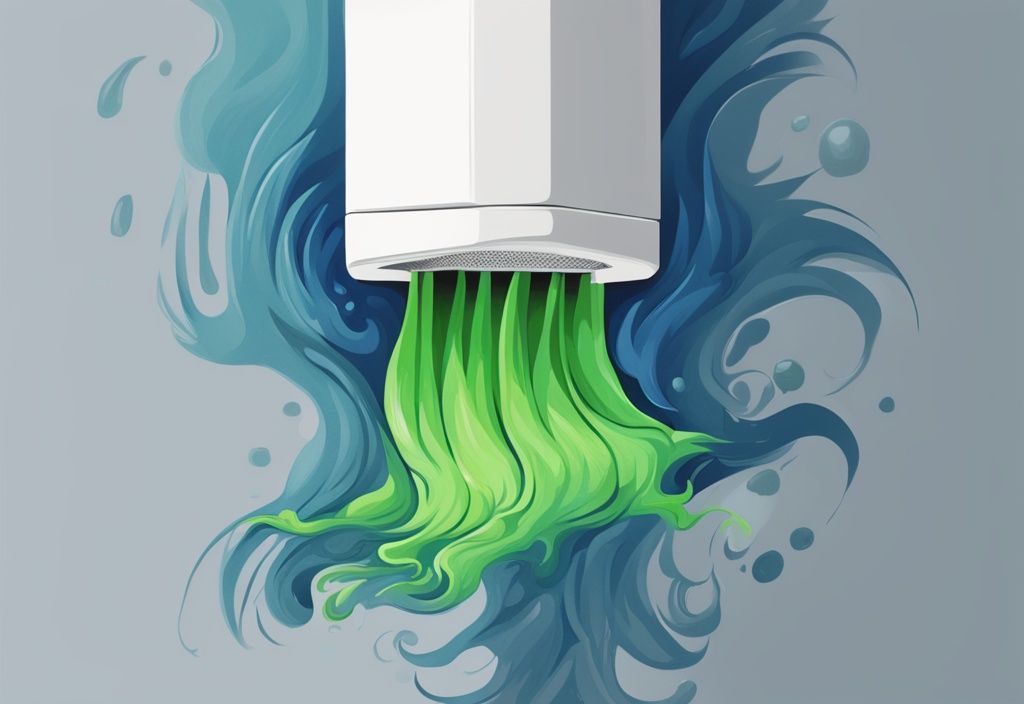
When to Call in Professionals
If the air vent in your home starts smelling like poop, it’s essential to know when to bring in the experts to fix the issue effectively.
Roles of Plumber and HVAC Technician
- Got a situation where your air vent smells like poop? That’s a job for a plumber. These pros can fix sewer line repairs and address plumbing vent issues. If you’re experiencing car issues, you might wonder, why is my driver side AC not blowing as cold as the passenger side. Their skills are invaluable in pinpointing and solving the nasty odor problem infiltrating your home through the HVAC system.
- Don’t underestimate the role of an HVAC technician in tackling these smells. They will clean the entire system, swap out any damaged parts, and ensure your HVAC setup is safe and stench-free for regular use. Their expertise helps keep those foul odors from coming back.
Long-Term Solutions and Prevention
- Regular maintenance is your best bet for keeping air vent smells like poop at bay. Scheduling periodic checks for your HVAC system and plumbing can help catch potential issues before they turn into serious problems. This consistent upkeep ensures everything runs smoothly and keeps your home smelling fresh.
- Think about getting professional inspections on a regular basis. These thorough evaluations by experts can help snag hidden problems early, ensuring your HVAC system and plumbing are always in top shape. For instance, if you’re wondering what does P1 mean on a portable air conditioner, a professional can quickly diagnose and address such issues. This proactive approach not only minimizes the risk of recurring stink but also extends the life of your system.
Conclusion
Keeping your home free from unpleasant odors like the notorious “air vent smells like poop” is more than just about comfort—it’s about protecting your health, too. Always remember, regular maintenance isn’t just a chore; it’s a necessity. Your HVAC systems and plumbing need a bit of love to prevent those foul smells from creeping in.
Over my two decades as an HVAC technician, I’ve seen it all. A common theme? Many homeowners face issues when their AC blows cold then warm, which can often be a sign of underlying problems. Neglect often leads to stink. So, if you catch a whiff of something off, don’t wait. Tackling the root cause swiftly not only nips potential health risks in the bud but also helps you dodge those expensive repair bills down the line.
Imagine your HVAC system as more than just functional—it’s part of what makes your home a safe haven. With a bit of regular TLC and prompt attention when things go sideways, you’re not just ensuring fresh air. You’re crafting a healthier, happier living environment for you and your family.
Remember, staying on top of your HVAC maintenance isn’t just about gears and gadgets. It’s about peace of mind, knowing that a well-maintained system is looking out for you. The next time you’re lounging in your odor-free space, you’ll appreciate the comfort and health benefits of a clean, efficient system even more. Happy breathing!
FAQ
Why does my air vent smell like poop?
There are multiple reasons your air vent might smell like poop, folks. It could be because of damaged sewer lines, restricted evaporator core drains, plumbing vent issues, or even trapped dead animals. Let’s not forget mould or mildew, blocked sewer lines, dirty air filters, and vent pipe leaks or cracks—all of these can cause that unpleasant stench.
Can breathing in sewage gas from air vents make me sick?
Absolutely, yes. Inhaling sewage gas isn’t just unpleasant; it can lead to health issues like headaches, dizziness, nausea, and even respiratory problems. It’s best to deal with it as soon as you notice it.
How quickly should I address a sewage smell coming from my HVAC system?
If you catch a whiff of sewage coming from your HVAC system, jump on it immediately. You don’t want to risk prolonged exposure to toxic gases. Quick action can save you a lot of discomfort—and potentially some serious health problems.
What should I do if I suspect a dead animal is causing the smell?
First things first, do a thorough inspection of your HVAC system and the surrounding areas. Look for any signs of dead animals that might be the source of the odor. Once you locate and remove the culprit, the smell should dissipate. Just be sure to tackle it promptly to avoid any health hazards.
Can mould in my HVAC system cause a poop-like odor?
Yes, indeed. Mould or mildew in your HVAC system can produce a musty, and often foul, odor that’s sometimes mistaken for feces. It’s important to clean and maintain your system regularly to prevent mould buildup.
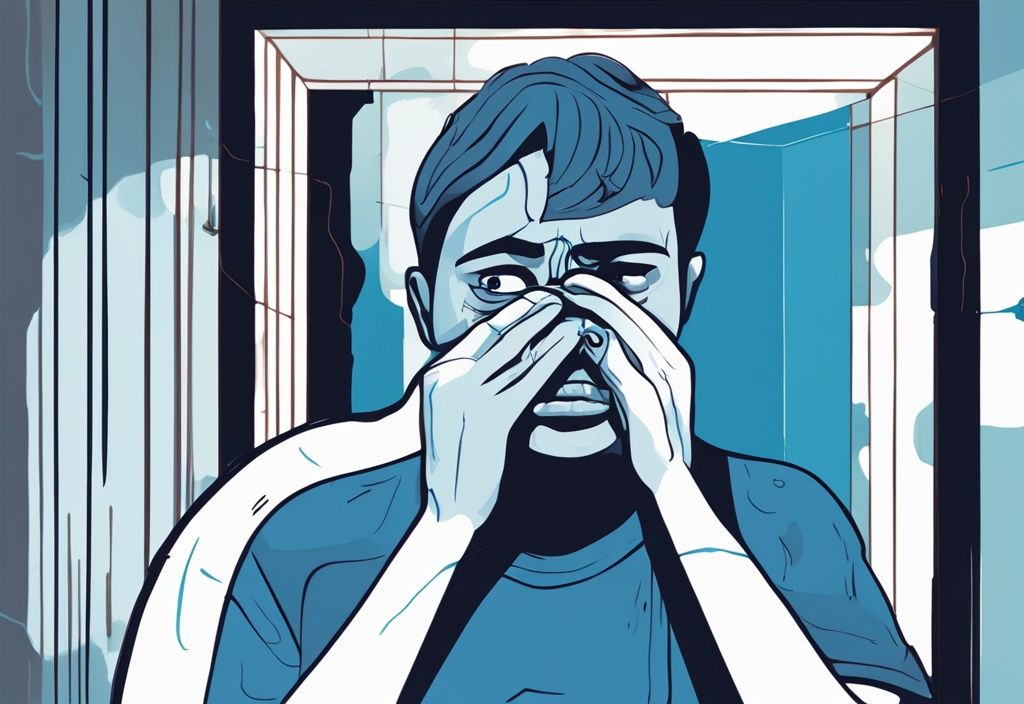
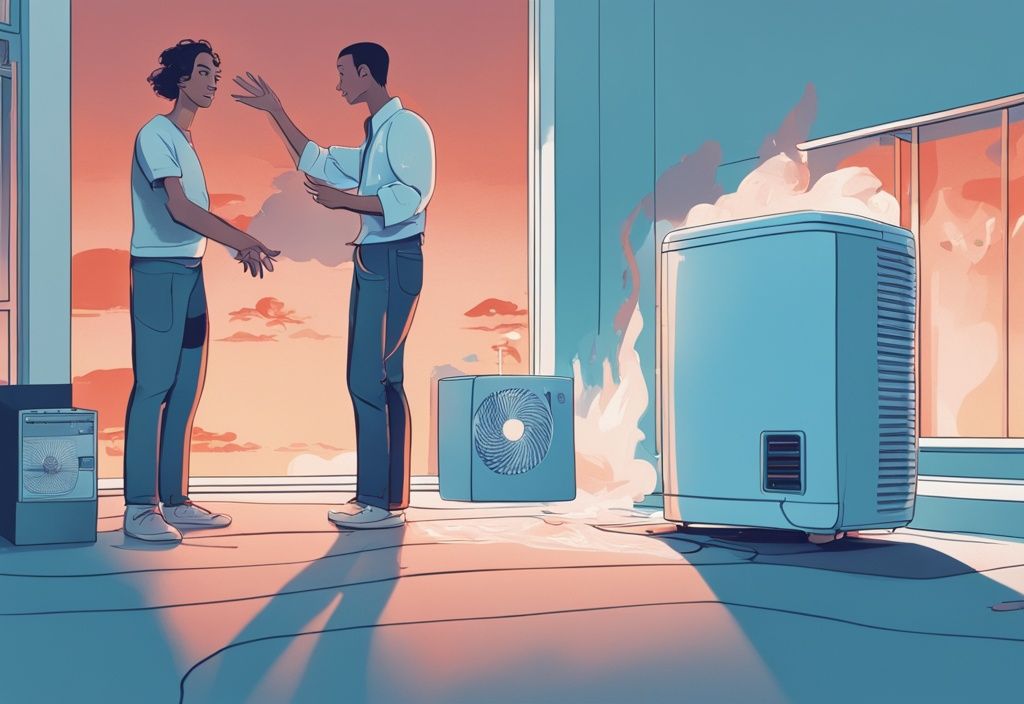
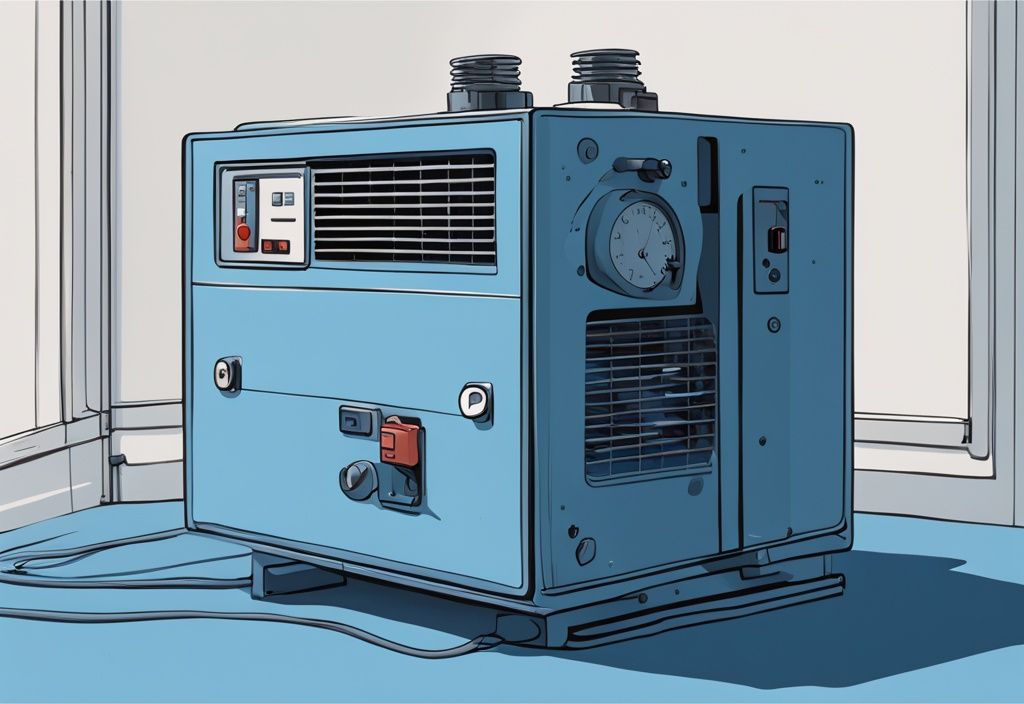
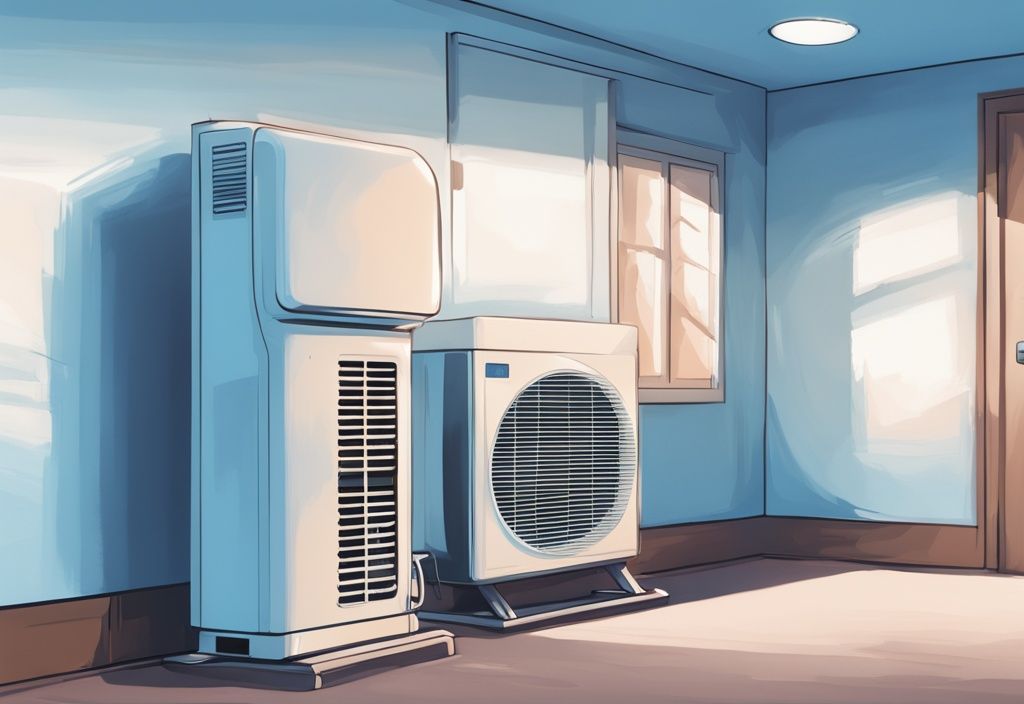
Post Comment